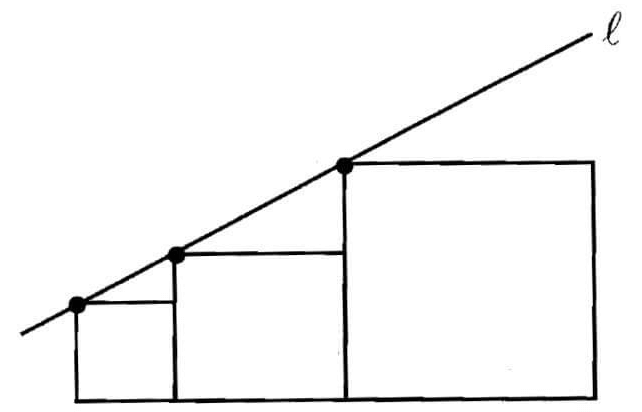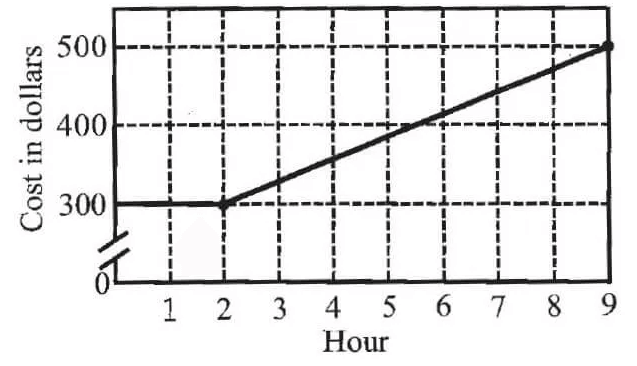PRACTICE QUESTIONS ON PROBABILITY
Question 1 :
Can two events be mutually exclusive and independent simultaneously?
Solution :
If two events A and B are mutually exclusive then
P(AnB) = 0 ----(1)
If two events A and B are independent then
P(AnB) = P(A) ⋅ P(B) ----(2)
(1) = (2)
P(A) ⋅ P(B) = 0
Case 1 :
If either P(A) or P(B) be equal to 0, then the events will be mutually exclusive or independent.
Case 2 :
If P(A) > 0 and P(B) > 0, then
P(AnB) = P(A) P(B) > 0 (Which is not equal to 0)
So, the events are independent not mutually exclusive.
Case 3 :
If P(A) > 0 and P(B) = 0 or P(A) = 0 and P(B) > 0, then
P(AnB) = P(A) P(B) = 0
So, the events are mutually not independent exclusive.
Hence, we may conclude that two events cannot be mutually exclusive and independent simultaneously.
Question 2 :
If A and B are two events such that P(A U B) = 0.7, P(A n B) = 0.2, and P(B) = 0.5, then show that A and B are independent.
Solution :
To show that event A and B are independent, we have to show that P(AnB) = P(A) ⋅ P(B)
P(AUB) = P(A) + P(B) - P(AnB)
0.7 = P(A) + 0.5 - 0.2
0.7 = P(A) + 0.3
0.7 - 0.3 = P(A)
P(A) = 0.4
P(AnB) = P(A) ⋅ P(B)
0.2 = 0.4 (0.5)
0.2 = 0.2
Hence the events A and B are independent.
Question 3 :
If A and B are two independent events such that P(A∪B) = 0.6, P(A) = 0.2, find P(B).
Solution :
Since A and B are independent events,
P(AUB) = P(A) x P(B)
P(A∪B) = 0.6, P(A) = 0.2
Since A and B are independent events, P(AnB) = 0
P(AUB) = P(A) + P(B) - P(AnB)
P(AUB) = P(A) + P(B) - [P(A) x P(B)]
0.6 = 0.2 + P(B) ( 1 - P(A) )
0.4 = P(B) (1 - 0.2)
P(B) = 0.4/0.8
P(B) = 4/8
P(B) = 0.5
Question 4 :
If P(A) = 0.5, P(B) = 0.8 and P(B/A) = 0.8, find P(A / B) and P(A∪B) .
Solution :
P(A/B) = P(AnB)/P(B) ----(1)
P(B/A) = P(AnB)/P(A)
0.8 = P(AnB)/0.5
0.8(0.5) = P(AnB)
P(AnB) = 0.4
By applying the value of P(AnB) in (1), we get
P(A/B) = 0.4 / (0.8)
P(A/B) = 0.5
P(AUB) = P(A) + P(B) - P(AnB)
P(AUB) = 0.5 + 0.8 - 0.4
P(AUB) = 0.9
Question 5 :
If for two events A and B, P(A) = 3/4, P(B) = 2/5 and AUB = S (sample space), find the conditional probability P(A/B)
Solution :
P(A) = 3/4, P(B) = 2/5 and AUB = S
P(AUB) = P(A) + P(B) - P(AnB)
1 = (3/4) + (2/5) - P(AnB)
1 = (15 + 8)/20 - P(AnB)
1 - (23/20) = P(AnB)
P(AnB) = 3/20
P(A/B) = P(AnB)/P(B)
= (3/20) / (2/5)
= (3/20) ⋅ (5/2)
P(A/B) = 3/8

Apart from the stuff given above, if you need any other stuff in math, please use our google custom search here.
Kindly mail your feedback to v4formath@gmail.com
We always appreciate your feedback.
©All rights reserved. onlinemath4all.com
Recent Articles
-
Digital SAT Math Problems and Solutions (Part - 146)
Apr 18, 25 06:52 AM
Digital SAT Math Problems and Solutions (Part - 146) -
Logarithmic Derivative Problems and Solutions
Apr 16, 25 09:25 PM
Logarithmic Derivative Problems and Solutions -
Digital SAT Math Problems and Solutions (Part - 145)
Apr 16, 25 12:35 PM
Digital SAT Math Problems and Solutions (Part - 145)

